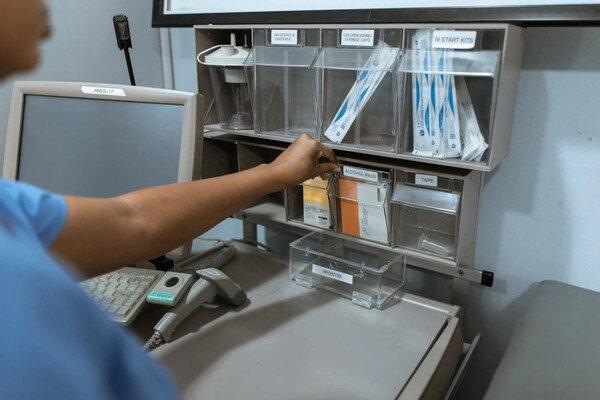Main Second Level Navigation
- Welcome
- Why Toronto?
- History of the Department
- Vision & Strategic Priorities
- Our Leadership
- Our Support Staff
- Location & Contact
- Departmental Committees
- Department of Medicine Prizes & Awards
- Department of Medicine Resident Awards
- Department of Medicine: Self-Study Report (2013 - 2018)
- Department of Medicine: Self-Study Report (2018 - 2023)
- Communication Resources
- News
- Events
Doctors' Notes: Researchers link hotter weather to gestational diabetes

Dr. Gillian Booth

Republished from the July 3, 2017 Toronto Star article.
There’s a little-known factor that influences whether pregnant women develop gestational diabetes — body temperature.
In my work as an endocrinologist and diabetes researcher, I investigate how our environment can increase a person’s risk of developing diabetes.
Recently, my team and I looked at all of the hospital births in the Greater Toronto Area — more than 55,000 in all — over 12 years to see what kind of impact temperatures might have on the risk of gestational diabetes (known as GDM), a temporary condition that can develop during pregnancy.
We found a relationship between cold weather and a lower likelihood of GDM. When the mercury dropped to an average temperature of minus 10 degrees Celsius, the rate of GDM was 4.6 per cent. But at 24 degrees Celsius, the rate rose to 7.7 per cent. And for every 10-degree rise, there were further increases of up to 9 per cent — even when accounting for other risk factors.
Whether the women themselves were born in warm or cool climates, our research team found that colder temperatures still appear to offer some protective benefit to the mothers. Our findings also applied to women who had one child as well as to moms who had multiple children throughout the study’s duration.
More research is needed to better understand the links between temperature and GDM risk, but our findings may have implications for prevention and treatment of the disease. Simple measures like making use of air conditioning and not overdressing in hot weather or keeping the thermostat lower and getting outside in colder weather might help.
We need to study it further, but we think this link between temperatures and GDM risk might have something to do with brown fat, which burns energy and produces heat. Scientists used to think that newborn babies were the only people who had brown fat — because infants are less able to regulate temperature, they need it to help them stay warm. About a decade ago, researchers discovered that adults have small amounts of it, too.
In GDM and type 2 diabetes, your insulin has to work harder to use glucose as energy. This is called insulin resistance and it makes your pancreas work harder to make more insulin to overcome this problem.
Pregnancy naturally causes insulin resistance. If you have the right set of genes and a lower body weight, you’re better able to overcome and have normal blood sugar levels. But women at greater risk of diabetes will have more difficulties doing so and may develop GDM. Staying active by walking regularly and eating a healthy diet may help you avoid GDM even if you are at risk.
While GDM itself is temporary, its impact can be serious and long lasting. Women who develop it are at an increased risk of developing type 2 diabetes. So are their children.
Left unmanaged, diabetes in pregnancy can lead to high blood-pressure known as pre-eclampsia, premature delivery, stillbirth and miscarriage. It can also contribute to having a large baby who weighs more than 9 pounds. This can make your delivery harder, increase your chances of having a Caesarean birth, and raise the likelihood that your child may develop diabetes in the future or become obese later in life.
That’s why it’s so important for women to take the glucose challenge test that screens for the disease. This is usually performed near the end of their second trimester.
Known risk factors for GDM include having a higher body weight before pregnancy, having a parent, sibling or child with diabetes, a previous diagnosis of GDM, and being pregnant at 35 years or older.
If you develop GDM during your pregnancy, it’s important to be screened for type 2 diabetes in the first six weeks and six months after your baby arrives and again before you plan another pregnancy. Depending on what other risk factors might be in play, testing every three years might also be a good idea.
In my medical practice, I help my patients with diabetes get ready for pregnancy. If you’re a woman who has pre-existing diabetes, get preconception care to make sure your blood sugar is under control, review your medications and assess possible complications.
There are no guaranteed ways to prevent GDM, but maintaining healthy lifestyle habits can help you and your baby — before, during and after pregnancy.
Dr. Gillian Booth is an associate professor in the Department of Medicine at the University of Toronto’s Faculty of Medicine. She is also an endocrinologist at St. Michael’s Hospital and adjunct scientist at the Institute for Clinical Evaluative Sciences. Doctors’ Notes is a weekly column by members of U of T’s Faculty of Medicine. Email doctorsnotes@thestar.ca .


